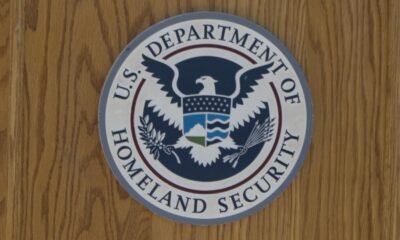abortion
US Supreme Court Ruling Poses New Challenges for Planned Parenthood in Arizona

Supreme Court ruling revives debate over Arizona abortion law
Planned Parenthood funding tied to broader abortion fight
Legal challenge needed to lift enforcement injunction
The U.S. Supreme Court’s recent decision on June 26 could influence Arizona’s enforcement of a law prohibiting funding to Planned Parenthood.
The 2012 statute asserts that Planned Parenthood is ineligible for Medicaid reimbursements for a variety of services, including health care and family planning, solely due to its abortion services. Planned Parenthood subsequently filed a lawsuit.
This lawsuit led to a federal court blocking the law’s enforcement, a ruling later upheld by the 9th Circuit Court of Appeals. The U.S. Supreme Court declined to intervene in 2014.
Despite remaining on the books, the enforcement of this law is still uncertain.
A significant factor in this ongoing debate is the Supreme Court’s 6-3 vote favoring a similar South Carolina law, which restricts Medicaid funds for organizations offering abortion services.
Both the South Carolina regulation and the unenforced Arizona statute raise questions about lawmakers’ authority to restrict Medicaid reimbursements based on abortion services.
In blocking the Arizona law, Judge Neil Wake argued that it infringes on the right of Medicaid beneficiaries to choose their providers for non-abortion-related services.
Wake stated that the Arizona law violated the freedom of choice provision inherent in the Medicaid Act. His injunction remains in effect until challenged legally.
Representative Justin Olson, who authored the original legislation, is seeking someone to pursue lifting the injunction, though this may prove complex.
Olson asserts that the state’s Republican-controlled Legislature does not wish to take action, but believes the attorney general may be able to do so. An aide stated that they are reviewing the implications of the Supreme Court ruling for Arizona law.
Attorney General Kris Mayes has previously expressed reluctance to defend laws she deems harmful to abortion rights, complicating Olson’s efforts.
Olson indicated that county attorneys might hold the necessary authority to challenge the injunction and plans to reach out to them.
Notably, the South Carolina law stems from an executive order rather than a statute, illustrating different routes to similar legislative goals.
This order, issued by Governor Henry McMaster, prohibits Medicaid participation for organizations offering abortions, leading to challenges by Planned Parenthood.
In a separate ruling, Supreme Court Justice Neil Gorsuch highlighted that private enforcement decisions should be left to elected representatives, not the judiciary.
McMaster hailed the decision as a victory for his executive order prohibiting taxpayer funding for organizations like Planned Parenthood.
Olson reiterated that the motivations behind both the Arizona law and the South Carolina order are aligned, emphasizing a desire to prevent public funding for what some view as morally objectionable practices.
However, the recent Supreme Court ruling does not automatically reinstate the Arizona law because it specifically targets the South Carolina regulation. Thus, legal action is required for any chance of revisiting Wake’s decision.
Despite this limitation, there are concerns that the ruling could embolden other states to pursue similar legislation.
Furthermore, as the Trump administration seeks to limit federal funds for Planned Parenthood, ongoing congressional discussions about funding could further complicate matters.
















